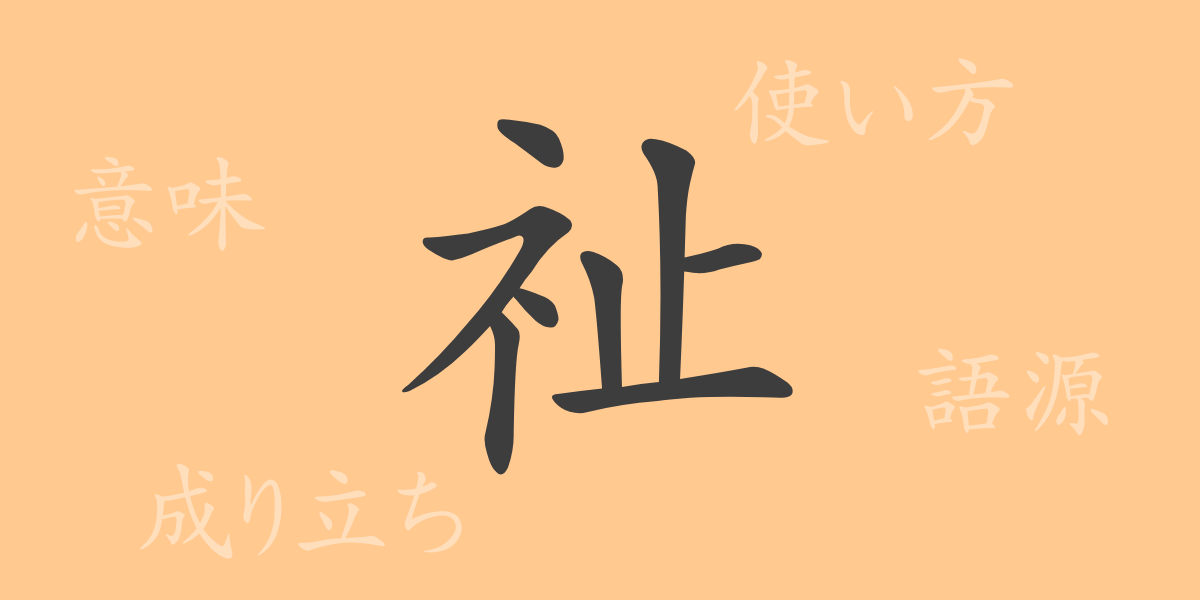The depth of Japanese writing culture lies in the meanings and histories embedded in each character. This time, we spotlight “祉(し),” one of the common kanji characters, to explore its origin, meaning, usage, and the full scope of this beautiful character. Even in modern society, the spirit of “祉(し)” is crucial, serving as a fundamental concept in welfare and an essential part of our lives.
Origin of 祉(し)
The kanji “祉(し)” evolved from ancient Chinese pictographs. Originally, it consisted of the radical “示(しめす),” representing a divine or ritual offering, combined with the character “口(くち),” symbolizing a mouth. This combination signified words or blessings offered to the gods, representing divine favor and welfare. Over time, this character came to embody the concept of wishing for people’s happiness and well-being.
Meaning and Usage of 祉(し)
The character “祉(し)” signifies welfare and happiness, describing a state of well-being and prosperity for people. This kanji is primarily used in the context of public welfare systems and services that support people’s happiness. For example, it appears in terms like “社会福祉(しゃかいふくし)” (social welfare) and “福祉施設(ふくししせつ)” (welfare facility).
Readings, Stroke Count, and Radical of 祉(し)
How is the kanji “祉(し)” read and structured in Japanese?
- Reading: The on’yomi (音読み) reading is “シ(shi),” and it does not have a kun’yomi (訓読み) reading.
- Stroke count: “祉(し)” has a total of 8 strokes.
- Radical: The radical is “示(しめす),” representing a divine or ritualistic aspect.
Idioms, Phrases, and Proverbs Using 祉(し)
Many idioms and phrases in Japanese incorporate “祉(し),” most of which relate to happiness and welfare. Here are a few examples:
- 社会福祉(しゃかいふくし): Social support and services that aid citizens’ lives.
- 福祉国家(ふくしこっか): A state that actively implements welfare policies to ensure citizens’ well-being.
- 児童福祉(じどうふくし): Systems and activities aimed at the healthy development and welfare of children.
Conclusion on 祉(し)
The kanji “祉(し)” symbolizes an essential concept in our lives—welfare and happiness. It deeply influences the ideologies and systems that support society. This character embodies the desire to enrich people’s lives and pursue happiness, maintaining its significance in modern society. Understanding the meanings embedded in each kanji is vital for a deeper comprehension of the Japanese language.

























